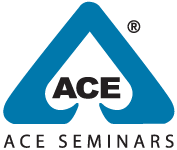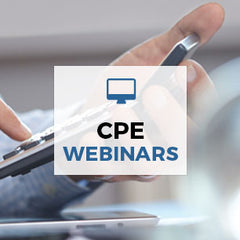Deceptive Accounting Practices & Ethics In Accounting Recognizing the Warning Signs of Fraud
(Full-Day or 2 Half-Days)
Previous
Next
(Full-Day or 2 Half-Days)
CREDITS: 8
CATEGORY: Accounting (8), Ethics (4)
SPEAKER: Kenneth Heaslip, CPA
DATE: Tuesday January 6, 2026 or 2 Half-Days 1/6 & 1/7
or Any Day or 2 Half-days 1/19-22
or Any Day or 2 Half-days 2/9-12
TIME: Full Day Option: 8:50 A.M. - 5:10 P.M. Eastern
8:50 - 10:45 Welcome & Lecture
10:45 - 11:00 Coffee Break
11:00 - 12:30 Lecture
12:30 - 1:30 Lunch (on your own)
1:30 - 3:15 Lecture
3:15 - 3:30 Coffee Break
3:30 - 5:00 Lecture
5:00 - 5:10 Wrap-up
Half Day Option: View Anytime Between 9AM-5PM Eastern on each day.
LOCATION: All New (2023) Pre-Recorded Webinar With Live Q&A
The morning session is a case study approach to learning about fraud in financial statements. It is valuable for anyone who prepares and reports on financial statements. The focus is on real fraud cases, how they were executed, and how they could have been caught.
The afternoon session by Kenneth Heaslip details everything you need to know regarding your ethical requirements. We all try to the right thing but many of us have busy practices and those pressures may cause us to inadvertently face an ethical problem. This class is designed to help you avoid violating your ethical duties. Earn all your 4 CPE/CLE credits in Ethics from this seminar! This afternoon session will satisfy the ethics requirement for NYS, Ohio, and all states that do not have a specific ethics requirements! Earn all your required ethics with this course.
Choose to attend both sessions or just one.
REMINDER: You need to have 40 CPE credits in A&A every 3 years if you prepare financial statements. This seminar will help you meet your 40 CPE requirement.
Topics & Learning Objectives Include:
Deceptive Accounting Practices
- The role of the auditor
- The AICPA Fraud Risk Framework
- Inventory
- Cash
- Capitalizing assets
- Revenue recognition
- Channel stuffing
- Related party transactions
- Reserve
Ethics
- To learn and understand the AICPA’s Code of Professional Conduct for CPAs in public practice and business
- To learn and understand New York State laws and regulations related to the practice of public accountancy
- To understand the Ethics conceptual framework
- To understand standards related to integrity, objectivity, independence, general, and acts discreditable.
Kenneth Heaslip is one of the foremost lecturers in Accounting & Auditing. He has over 30 years of experience in lecturing on A&A topics and is currently a professor at Mercy College.









